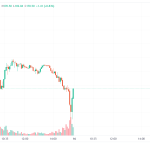Traders can better manage their psychological environment, realistic expectations, improve their chances of long-term success in the trading world.
Psychological Strategies for Superior Trading Outcomes
What you're describing highlights the crucial role of trading systems in simplifying and structuring the inherently complex nature of financial markets. Let’s break down the key points:
- Complexity and Overwhelm: Markets can indeed be overwhelming due to their complexity and the vast array of possible behaviors. Traders can find themselves lost without a structured approach to filter and make sense of the data.
- Role of Trading Systems: Trading systems help by defining parameters for market behavior, which can simplify the decision-making process. They categorize market signals and provide guidelines on how to act based on predefined rules or criteria. This reduces the mental burden of processing endless possibilities and makes trading decisions more systematic.
- Skill Development: Following a trading system can enhance a trader’s skills over time. As traders repeatedly apply the system’s rules, they start to develop a deeper understanding of how to interpret and act on market signals. This process helps in building expertise and confidence.
- Thinking Methodology: Beyond just applying a trading system, the thinking methodology you're referring to seems to involve the cognitive and psychological aspects of trading. This methodology would focus on how to effectively utilize the skills learned from the trading system and apply them in different scenarios. It emphasizes the importance of mental discipline, awareness, and decision-making processes in trading.
- Application of Skills: The goal is not just to follow a system blindly but to develop the ability to adapt and apply skills in various market conditions. This involves a combination of understanding the system, recognizing when and how to use different skills, and refining one's approach based on experience.
In essence, the focus is on integrating a structured trading system with an adaptable mental framework, ensuring that traders can both manage the complexity of the market and continually enhance their trading capabilities.
Psychological strategies involve mental and emotional techniques used to manage one’s psychological state while trading. These strategies include mental discipline, stress management, emotional regulation, and cognitive flexibility.
- Psychological Control in High-Stress Situations:
- Importance of Skills: Being able to manage one’s psychological state is crucial, especially in high-pressure trading scenarios where quick decisions are necessary. A well-developed mindset helps in maintaining clarity and composure under stress, which is essential for making effective trading decisions.
Natural Tendency to Generalize Success Principles:
- Overgeneralization: Traders often bring success principles from other areas of their lives into trading. This tendency can be problematic if the principles are not adapted to the specific conditions of the trading environment. Success in one field does not automatically translate to success in trading without appropriate adjustment and understanding of the unique dynamics of the market.
Misplaced Confidence and Unrealistic Expectations:
- Unfounded Confidence: Success in other careers can lead traders to believe that trading will be similarly straightforward. This overconfidence often results in unrealistic expectations about the ease of success in trading.
- Distorted Perceptions: The market can distort perceptions of reward and effort, leading traders to expect quick and substantial gains without fully understanding the risks and complexities involved.
Performance Standards and Expectations:
- Four Components of Performance Standards: Understanding what makes up personal standards of performance or expectations is vital for realistic goal-setting. These components typically include:
- Historical Performance: Past experiences and successes influence expectations.
- Peer Comparisons: Comparing oneself to others in similar fields can affect expectations.
- Market Conditions: The current state of the market and its behavior can shape what is considered achievable.
- Personal Goals and Ambitions: Individual goals and aspirations set the benchmarks for performance expectations.
Key Takeaways for Traders:
- Adaptation of Skills: Ensure that any principles or methodologies from previous successes are adapted to the unique environment of trading.
- Realistic Expectations: Set realistic performance expectations based on a thorough understanding of market conditions and personal trading capabilities, rather than on past success in unrelated fields.
- Continuous Learning: Remain open to learning and adjusting strategies as you gain more experience in trading. Recognize that trading requires a different set of psychological and strategic skills compared to other professions.
Conclusion
These aspects, traders can better manage their psychological environment, set more realistic expectations, and improve their chances of long-term success in the trading world.
Leave a comment
Your email address will not be published. Required fields are marked *



